-
Port-Bouët respirera : Stop à la pollution plastique et à l’érosionSoutenir cette pétition, c’est soutenir des solutions conçues par et pour la communauté, fondées sur l’expérience réelle et non sur des théories éloignées du terrain. Il y a une urgence intergénérationnelle. Ce que nous ne nettoyons pas aujourd’hui empoisonnera nos enfants demain. Cette lutte dépasse l’instant présent : elle concerne la dignité de Port-Bouët et l’héritage que nous laisserons aux trois prochaines générations. Agir maintenant, c’est refuser de transmettre un littoral dégradé et dangereux. Ensemble, nous devenons une force écologique et politique que plus personne ne peut ignorer. Chaque signature renforce cette voix collective. Votre signature est un outil concret - le râteau qui nettoiera nos plages et obligera à l’action. Signer cette pétition, ce n’est pas soutenir un discours. C’est exiger un changement de cap, reconnaître la valeur de l’expertise citoyenne et défendre le droit de Port-Bouët à un avenir sûr, sain et digne. Votre signature est un acte de protection, de justice environnementale et de responsabilité envers les générations à venir.38 of 100 SignaturesCreated by Issouf Pazini Kone

-
Give Communities a Voice: Demand Accountability in the Simandou Mining ProjectLe projet Simandou ne doit pas devenir un nouvel exemple de communautés payant le prix du développement national. La Guinée mérite le progrès économique, mais pas au prix de terres agricoles détruites, d’eau polluée et de voix réduites au silence. Sans transparence ni véritable participation communautaire, des générations entières risquent de perdre leurs terres, leurs moyens de subsistance et leurs droits. En signant cette pétition, vous exigez un Simandou qui sert véritablement le peuple guinéen, son environnement, sa dignité et son avenir. Notre objectif est de recueillir au moins 5 000 signatures afin de : • Renforcer et soutenir le Mémorandum citoyen actuellement en préparation par L’Autre Face de Simandou et ses partenaires ; • Soumettre officiellement cette demande collective au Gouvernement de la République de Guinée, au Ministère de la Géologie et aux compagnies minières concernées, pour que la voix des communautés ne soit pas ignorée. Votre signature est un pas vers la justice, la responsabilité et un avenir où le développement ne se fera pas au détriment du peuple.60 of 100 SignaturesCreated by L'autre Face de Simandou Guinée
-
Ditch Plastic Coffee Cups – The Planet and Your Health Can’t Wait!Here’s the truth: • Disposable = Disastrous Mountains of waste. Air and water pollution. Wildlife in danger. • Reusable & Biodegradable = Responsible Less waste. Lower carbon footprint. Healthier people. Healthier planet. Biodegradable cups are made from safe, plant-based materials and break down quickly — unlike plastic, which outlives us all. Many reusable or compostable options are now just as practical as plastic, but infinitely smarter. The choice is clear: Convenience is not worth the cost. Stop the excuses. Start the change. Ditch plastic. Choose better. Now.31 of 100 SignaturesCreated by Eco- Warriors
-
Tenir compte APAC et AMECZ, forêts sacrées dans le décret d'application loi forestière 2024La prise en compte des forêts sacrées et autres espaces à conservations communautaires dans le décret d'application relatif aux aires protégées communautaires permettra aux communautés locales de recevoir un soutien considérable du MINFOF. En effet, le classement de ces espaces dans le domaine forestier permanent est une garantie pour la sécurisation de la diversité bioculturelle qu'ils renferment, des valeurs culturelles et pratiques traditionnelles, des droits substantiels et procéduraux des communautés locales aux terres et aux ressources naturelles. Cette pétition incitera le MINFOF de prendre en compte les différentes recommandations faites par les acteurs de la conservations des APAC ( Aires du Patrimoine Autochtone et Communautaire) et AMECZ (Autres Mesures Efficaces de Conservations par Zones) lors de la deuxième édition du FONAPAC (Forum National des Aires du Patrimoine Autochtone et Communautaire de Forêts et lieux sacrées au Cameroun) qui s'est tenue du 14 au 16 Octobre 2024 à Bafoussam à l'initiative de la FIDEPE (Fondation Internationale pour le Développement, l'Education, l'Entreprenariat et la Protection de l'Environnement), Point Focal du Consortium APAC au Cameroun et Secrétariat Technique Permanent du RAPACAM (Réseau d'Appui et de Promotion des Aires du Patrimoine Autochtone et Communautaire de Conservation au Cameroun) en partenariat avec Greenpeace Afrique, la Commission Nationale de l'UNESCO pour le Cameroun et Right and Resource Initiative (RRI). Au rang de ces recommandations nous avons : § La formation des organisations de la société civile aux crédits carbone ainsi qu’aux moyens d’accès aux financements sur le crédit carbone ; § Soutenir les Communautés Locales par des programmes de formation, des subventions et des partenariats pour renforcer la gestion durable des APC ; § L’amélioration des connaissances et des possibilités de facilitations dans la collecte des données par les leaders traditionnelles ; § Prendre des mesures pour indemniser les communautés locales et peuples autochtones quant à la perte de leurs droits d’usage ; § Prendre des mesures pour accompagner les efforts de sécurisation collective ; § Introduire de nouveau mécanisme de financement gouvernementale pour le soutien aux acteurs de la conservation communautaires ; § Reconnaître les conservateurs communautaires des forêts sacrées et autres APAC de concert avec les communautés détentrices et les organisations d'encadrements ; § Améliorer la gouvernance de nos forêts sacrées ; § Mettre en place un registre national des APAC de concert avec les acteurs impliqués (communautés gardiennes et les organisations d'encadrement); § Créer un service d'appui et de suivi des APAC au MINFOF; § Créer un cadre de consultation multiacteurs en faveur des APAC ; § Mettre en avant le sacrée qui est l’élément fondamental plutôt que la forêt constituée des arbres. Nous te disons merci pour ta contribution car elle va faire bouger les choses.108 of 200 SignaturesCreated by Clovis KOAGNE
-
DEFEND KISAUNI:HALT ILLEGAL SAND HARVESTINGTo my community and others facing this environmental disaster, the losses we are enduring far outweigh the small, short-term gains that only provide hand-to-mouth benefits. There have already been tragic reports of casualties and deaths, and we do not need more lives lost to understand the harm this practice causes. I am calling on each and every one of us to take action now. It is up to us to save lives, protect our environment, and secure a sustainable future for generations to come. Sources: “Kisauni mine tragedy: Death toll rises to four Image Credit - Wachira Mwangi | Nation Media Group”635 of 800 SignaturesCreated by Subira Mwaboza
-
SA GOVT: STOP Animal Cruelty!This is not just an animal welfare issue - it is also a community issue. Neglected animals roam the streets, spread disease, and often fall into the hands of criminals. By acting now, we can reduce violence, associated with cruelty, reduce the amount of unwanted animals being euthanised, improve animal health and welfare, and create more compassionate and educated communities. Better funding for SPCAs will save animals' lives, while stricter laws will deter abuse. The time to act is now. Protecting our animals is a responsibility we cannot ignore. Sources: • PROJECT: SERIOUS VIOLENT CRIMES AGAINST ANIMALS • Animal Protection Act • “Curator” Arrested for Cruel Death of Dog He Was Supposed To Care For • NSPCA Celebrates Conviction of Man Who Axed His Dog to Death • Picture credit - Cape Of Good Hope SPCA879 of 1,000 SignaturesCreated by Tanja Pieterse
-
Interdisez les plastiques à usage unique à Kinshasa, RDC !L'article 53 de la Constitution de la République Démocratique du Congo stipule que "Toute personne a droit à un environnement sain et propice à son plein épanouissement. Ils ont le devoir de le défendre. L'État veille à la protection de l'environnement et de la santé de la population.». Nous exigeons que le Gouverneur de Kinshasa, Son Excellence Monsieur Daniel Bumba : 1. Interdire la production, l'importation, la commercialisation et l'utilisation de produits à usage unique sacs, sachets, films et autres emballages plastiques à Kinshasa. 2. Interdire la vente d'eau conditionnée dans des sachets plastiques à usage unique. Nous appelons toute urgence le gouvernement congolais à soutenir un traité mondial juridiquement contraignant sur les plastiques qui doit : 1. Mettre fin à la pollution plastique - de la production à l’élimination - pour protéger l’environnement et la santé humaine. 2. Fixer un objectif juridiquement contraignant pour réduire la production de plastique d’au moins 75 % d’ici 2040 afin de limiter le réchauffement climatique à 1,5°C. 3. Mettez fin aux plastiques à usage unique, en commençant par les articles les plus polluants comme les sacs en plastique. 4. Assurer une transition juste et inclusive vers une économie à faibles émissions de carbone, sans déchets et basée sur la réutilisation. 5. Être fermement ancré dans une approche fondée sur les droits de l’homme qui réduit les inégalités, donne la priorité à la santé humaine et met l’accent sur la justice dans sa création et sa mise en œuvre. Références: https://www.radiookapi.net/2024/06/06/actualite/societe/journee-mondiale-de-lenvironnement-kinshasa-face-linsalubrite https://www.greenpeace.org/africa/fr/communiques-de-presse/13013/interdiction-des-emballages-plastiques-a-kinshasa-une-decision-de-plus-sans-mesures-daccompagnement/ https://www.lemonde.fr/afrique/article/2023/01/04/rdc-kinshasa-noyee-sous-une-mer-de-dechets-plastiques_6156648_3212.html https://ponabana.com/kinshasa-devient-de-plus-en-plus-sale-a-cause-des-dechets-plastiques/5,925 of 6,000 SignaturesCreated by Michée N'KWADY

-
Ensure clean drinking water for all Cameroonians!With fewer than 40% of Cameroonians having access to clean water, the health risks are severe, and disparities between urban and rural access are glaring. Immediate action is needed to safeguard public health, reduce inequality, and promote sustainable water management.167 of 200 SignaturesCreated by Ines Tchakounte
-
STOP Joburg’s mines poisoning Soweto’s water!This must end now! We urgently call on the Minister of Mineral and Petroleum Resources, Gwede Mantashe, to: • Decommission abandoned mines lawfully • Give residents living in close proximity to the mine dumps a fair opportunity to be relocated, and • Deliver a comprehensive rehabilitation programme must be implemented to support urban agriculture The safety and health of Soweto’s residents must be a priority! Let’s demand justice for Soweto. Sign this petition and unite with us in the battle against toxic gold mine pollution.190 of 200 SignaturesCreated by Hulunn Choo
-
Don't be a fossil fool, ditch the single-use toolLet's be real! Local townships and city streets are suffocating in single-use plastic. Our ecosystems are being invaded by discarded single use plastic bags. If nothing is done now it will be too late to contain the contamination! Minister Dion George has the power to boldly lead SA into a plastic free future. South Africa’s neighbours, Eswatini and Botswana, Rwanda and Kenya have already acted! Minister Dion George, isn’t it time to “Rescue South Africa” from single use plastic bags? We need urgency. Tackling the plastics crisis is crucial for several reasons: 1. Environmental protection: Plastic pollution has devastating effects on ecosystems. In the oceans, plastics harm marine life, leading to injuries, fatalities, and disruptions in the food chain. On land, plastics can degrade soil quality and affect plant and animal life. By addressing the plastics crisis, we can protect biodiversity and maintain healthy ecosystems. 2. Human health: Plastics, especially microplastics, have been found in drinking water, food, and even the air. The ingestion and inhalation of plastic particles pose potential health risks, including toxic effects from chemicals used in plastic production. Reducing plastic pollution helps safeguard human health. 3. Climate change: The production and disposal of plastics contribute to greenhouse gas emissions, exacerbating climate change. By reducing plastic use and improving recycling, we can lower emissions and mitigate the impact of climate change. 4. Economic impact: Plastic pollution has economic consequences, including the cost of cleanup efforts, the impact on tourism, and damage to fisheries and agriculture. Addressing the crisis can alleviate these financial burdens and promote sustainable economic growth. 5. Future generations: The long-lasting life-cycle of plastics means they will remain in the environment for hundreds of years. Taking action now ensures that future generations inherit a cleaner, healthier planet. 6. Social justice: Plastic pollution often disproportionately affects marginalised communities, who may live near landfills or polluted waterways. Tackling the plastics crisis promotes environmental justice and ensures that all communities can live in a safe and clean environment.169 of 200 SignaturesCreated by August Maluka
-
Kenya Does Not Need a Nuclear Time BombThe catastrophic risks of nuclear power in Kenya are unbearable and exacerbate the climate crisis. We are therefore calling on you to stand with local communities. We demand that the CS of Energy & Petroleum immediately stop the construction of this nuclear power plant in Kilifi and instead invest in renewable energy in Kenya. Sign this petition now to unite your voice with the affected communities.100 of 200 SignaturesCreated by Joan Igamba
-
De-COAL-onise Tendele!Tendele was granted the Mining Rights (MR) in October 2016. The MR was contested and on 4 May 2022 the Pretoria High Court handed down a judgment relating to the Area 4 & 5 MR and its associated Environmental Management Programme (EMPr) held by Tendele (Court Case No: 82865/2018). The decisions to grant the MR and approve the EMPr were declared invalid by the Judge. [1] The MR and its EMPr were not, however, set aside by the Court but the appeal proceedings before the Minister of Mineral Resources and Energy (DMRE) have been reopened and the abuse and bullying has continued. Fear of reprisals, intimidations and assassinations are part of the Zululand communities daily lives, your punishment if you say no to the coal-onisers. Just recently, an Activist, Mama Fikele, who stood up against Tendele Somkhele coal mine was assassinated. [2] Tendele Somkhele are now on their 3rd Environmental Assessment Practitioner (EAP) in as many years, and each time a new EAP is assigned to push the Tendele Somkhele destruction. The consultations are flawed and EIA critically flawed. Disturbing facts have come to light, no sooner had Tendele Somkhele’s consultants put out their flawed I&AP, even although the consulting period is not halfway through, Tendele Somkhele is bulldozing it’s way through community lands, forcibly removing households or leaving them to watch their neighbour’s lands being bulldozed. Traumatizing and bullying communities yet again. [3] Very little rehabilitation has taken place in past open cast mining areas as required by the Department of Agriculture, mined areas to be returned to arable land. Instead, in the wake of the Tendele Coal-onisers, all that has been left is vast spaces of destruction. The destruction left behind by Tendele’s previous mining has created amongst the environmental destruction and health impact, additional fire risks. South Africa is a water scarce country, where will Tendele get their water from as coal needs thousands of litres of water to wash their coal? Does the community, their livestock and our wildlife once again need to fight for access to water or is Tendele given priority, Profit before people? The UN has recognised water as a fundamental Human Right. [4] Clean Air is also a basic human Right, it is a well researched fact that wind can carry particles of coal dust for up to 40 KM, contaminating and affecting human and environmental ecosystems. Stockpiled or left over coal undergoes atmospheric oxidation and desorption processes during open air storage, these processes release gases into the atmosphere, to once again, negatively impact human and environmental ecosystems. Every few years, the Zululand communities and their homesteads are needing to play hopscotch with the Coal-onisers as they’re forcibly removed from one area to another because new destructive coal mining is needed. Each new coal mining application brings with it empty promises of job creation, what happens to the workers from their previous mine, were their contracts terminated and they’re now left unemployed or have they left due to bad health caused by coal mining, or worse, have they passed on, also due to the impact of coal mining? [5] What do we want! Tendele Somkhele’s latest onslaught and bullying on the Zulu Kingdom needs to come to an end, South Africa has signed the Paris Agreement and needs to adhere to the Presidential Climate Commission, we don’t need more coal, we need a just transition to renewable energy! End coal by coal-onisers before it ends us!! PeoplePower!!! Source: [1] Supreme Court Ruling 2023 [2] Condemnation of the assassination of Mama Fikile [3] Coal company sends bulldozers into KZN village [4] UN Water is a Human Right [5] 5000 applications for 100 jobs at Somkhele coal mine Photo credit Tsepang Molefe for groundWork3,825 of 4,000 SignaturesCreated by Desiree Laverne





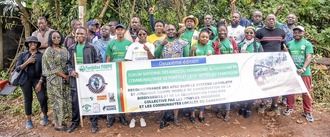
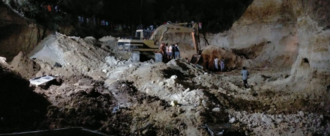
.png)

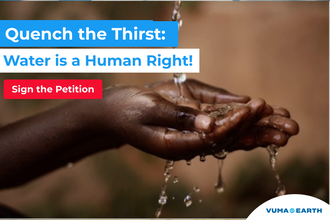.png)

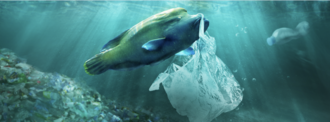
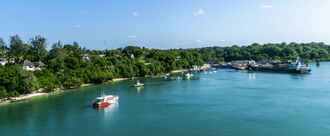.jpg)
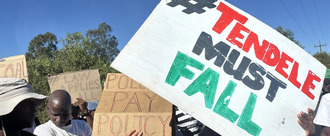_61256737.jpg)